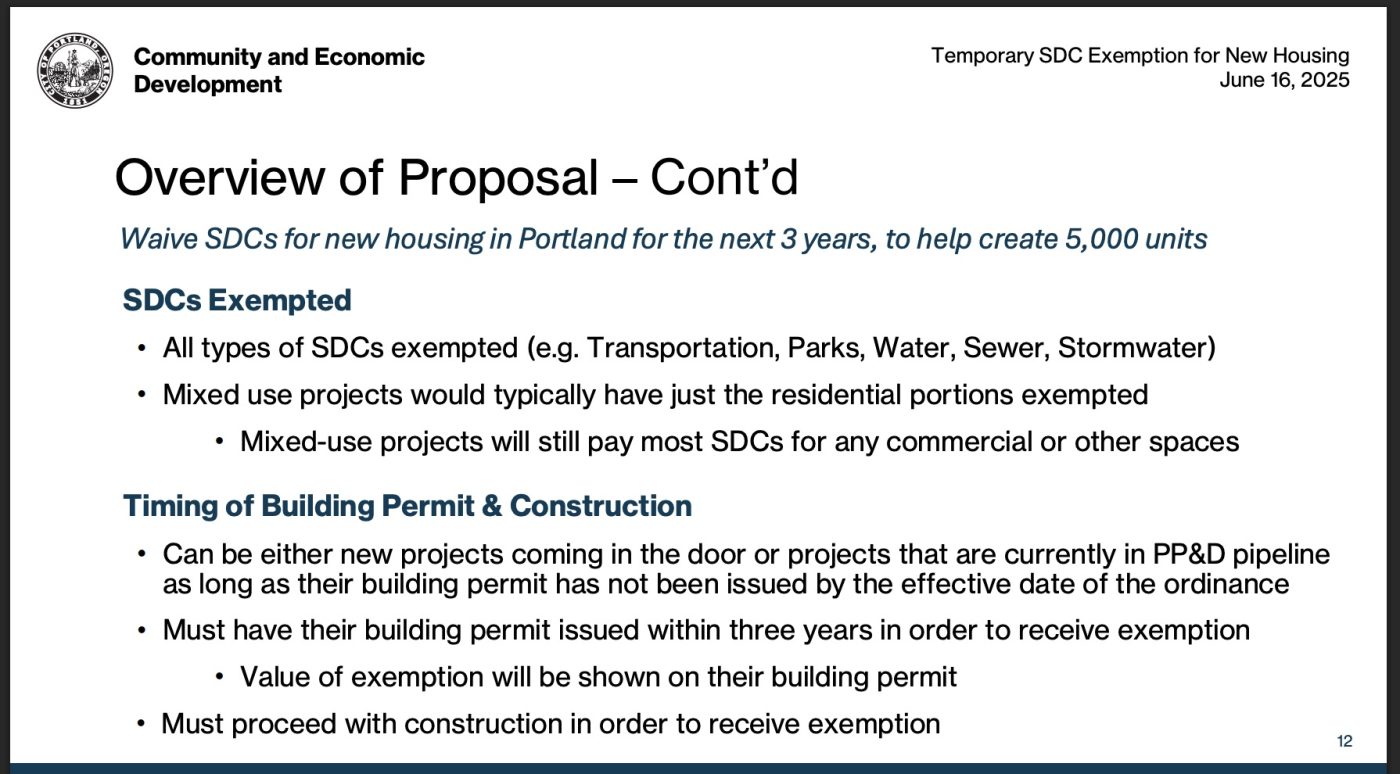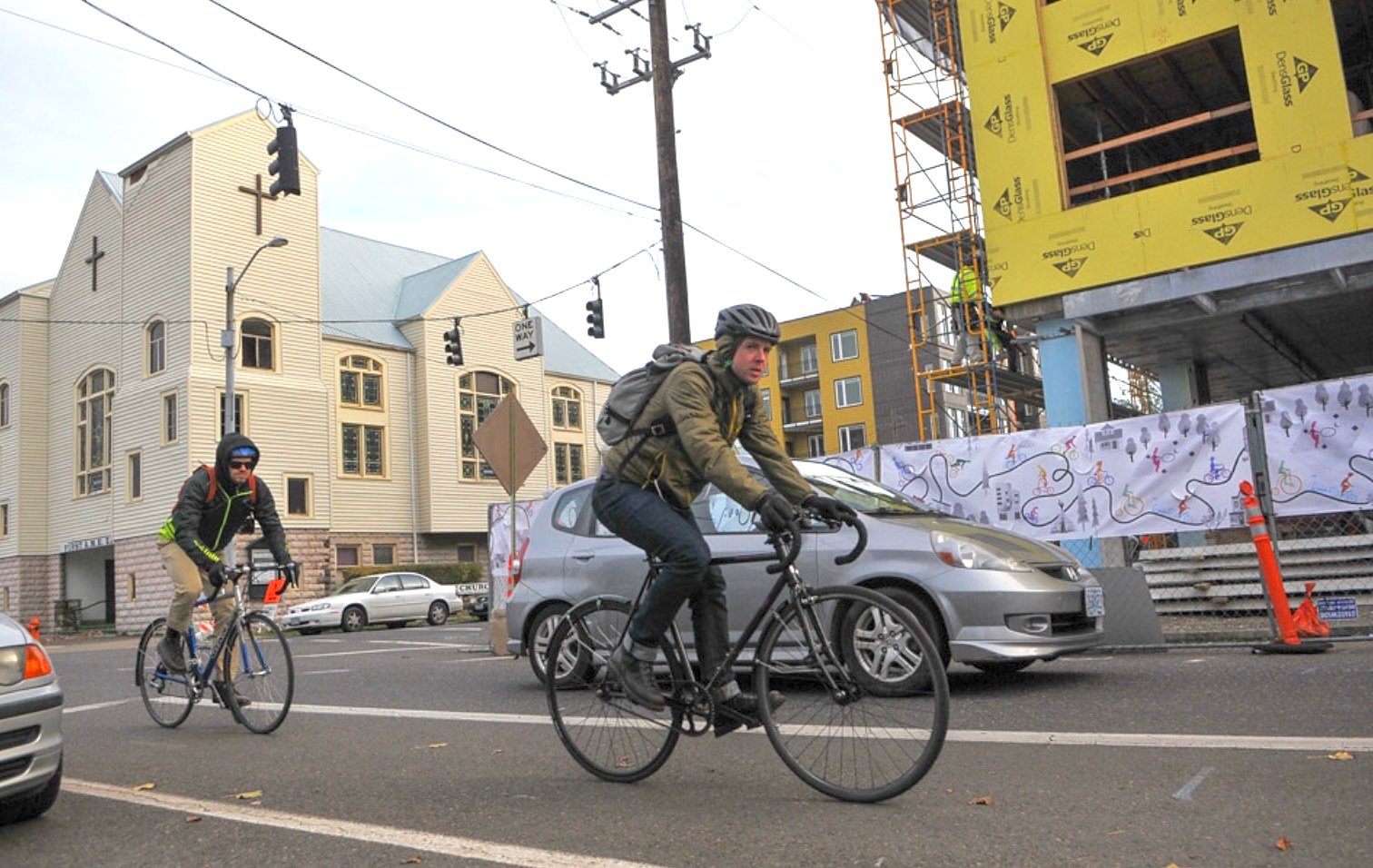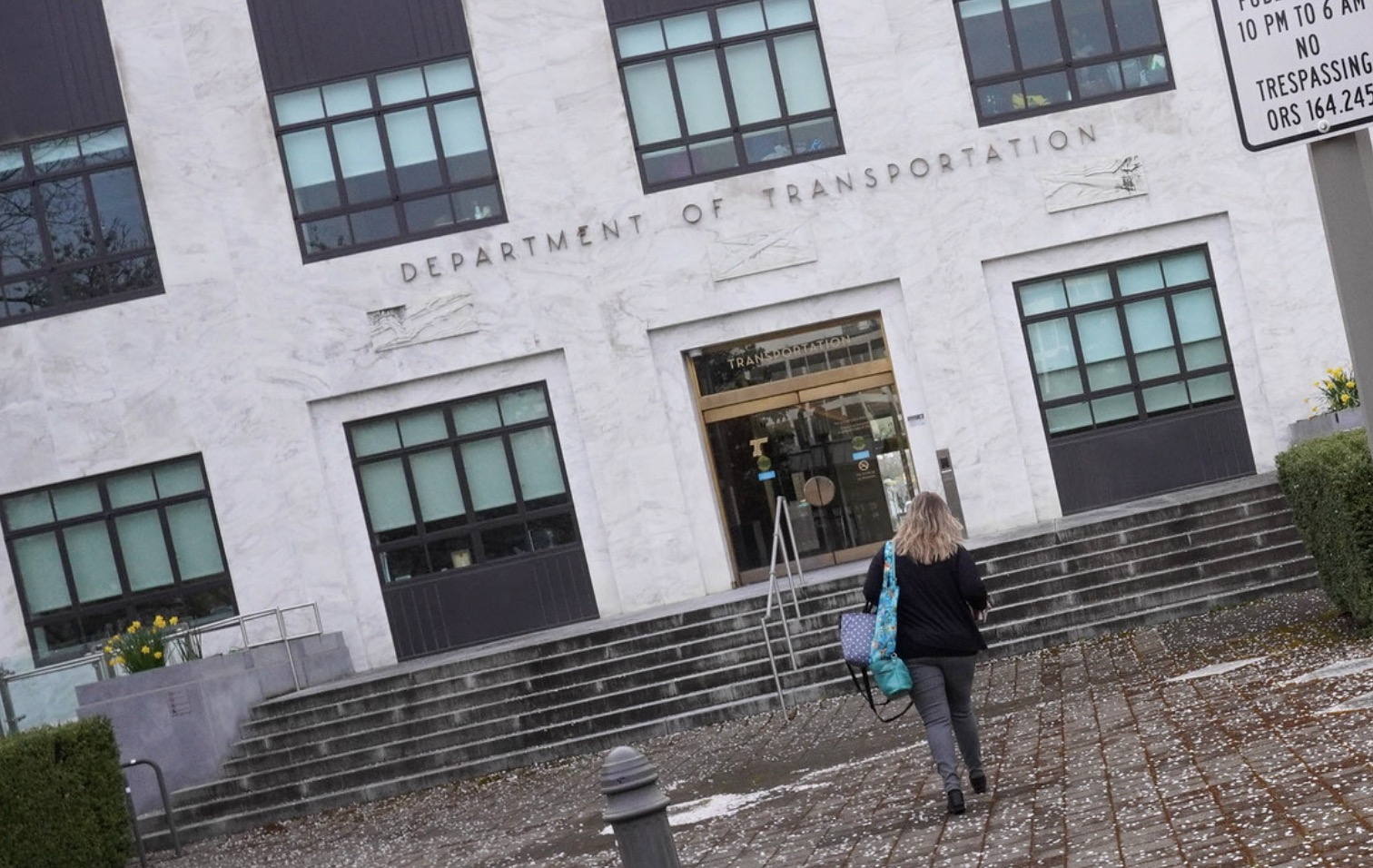Housing construction fee waiver comes at a cost for transportation infrastructure – BikePortland

Last week Portland City Council voted unanimously to give developers a three-year reprieve from paying system development charges (SDCs) on residential housing projects. SDCs are fees paid to city bureaus to help pay for infrastructure that supports new developments.
While councilors agreed the fee waiver would help boost badly needed construction of more residential units (Portland produced just 818 market rate units in 2024, the lowest total in 10 years), it’s worth noting that the move represents yet another loss of funding for the Portland Bureau of Transportation (PBOT). The three-year SDC moratorium is estimated to cost the City of Portland about $63 million total.
According to a presentation from the Office of Community and Economic Development shared with City Council, the move will cost PBOT $10 million. This comes on top of a narrowly averted budget crisis, continued uncertainty with federal funding that has put $197 million in project grants in limbo, and an $11 million gap from the state due to the failure of HB 2025.
While 10 councilors (two were absent) voted to support the fee waiver ordinance with hopes it would boost production of 2,500 additional housing units (on top of estimated 2,500 for a total of 5,000), some expressed reservations.
“I’m worried about how much infrastructure funding where we can afford to lose,” said Councilor Candace Avalos, who represents east Portland.
Council President Elana Pirtle Guiney said, “I don’t take lightly the fact that we’re foregoing tens of millions of dollars of revenue for public infrastructure at a time when we have so many infrastructure needs. But I also know that right now, with the tools in our toolbox, this is the single most impactful thing that we can do this year to support housing development.”
The loudest and most eloquent supporter of the SDC waiver is District 4 Councilor Mitch Green. He told members of the PBOT’s Pedestrian Advisory Committee last week that he simply doesn’t like SDCs.
“Because however well-intentioned they are,” Green explained, “They only work when there’s development occurring and they are a marginal cost of development.” Green feels it’s already relatively expensive to develop land in Portland due to our labor and land-use laws, so anything that increases the cost of production just leads to less housing being built. “And if you get less of it, you don’t get as much of a resource for your infrastructure development, which means that latest development, or that last part of the city to come into the boundaries of the city just doesn’t get it, and then you have to compete for a small pool of money relative to the scale of the problem.”



Green sees infrastructure as a “collective problem” and a “public good that spans the whole city,” whereas SDCs only accrue in parts of the city lucky enough to see development. “The unintended consequence of it is you have a situation where neighborhoods have been brought into the city and just haven’t seen any infrastructure development on any meaningful time scale… if you have a family that moves to Hayhurst (in southwest), for instance, their kids are going to grow up and move away before they’re going to get a sidewalk to school. And that’s because we don’t have enough money in the bank for SDCs.”
Key to Green’s outlook on SDCs is that more housing units equals more taxpayers who can ultimately pay into a future PBOT funding pot. Green would rather see a more stable funding source for PBOT and he mentioned several times the city’s current effort to find one.
The ordinance that passed yesterday has set a goal of 5,000 housing units in the next three years. Expect City Council to monitor progress toward that goal and discuss the future of SDCs when — or if — it’s reached.
Share this content:















Post Comment